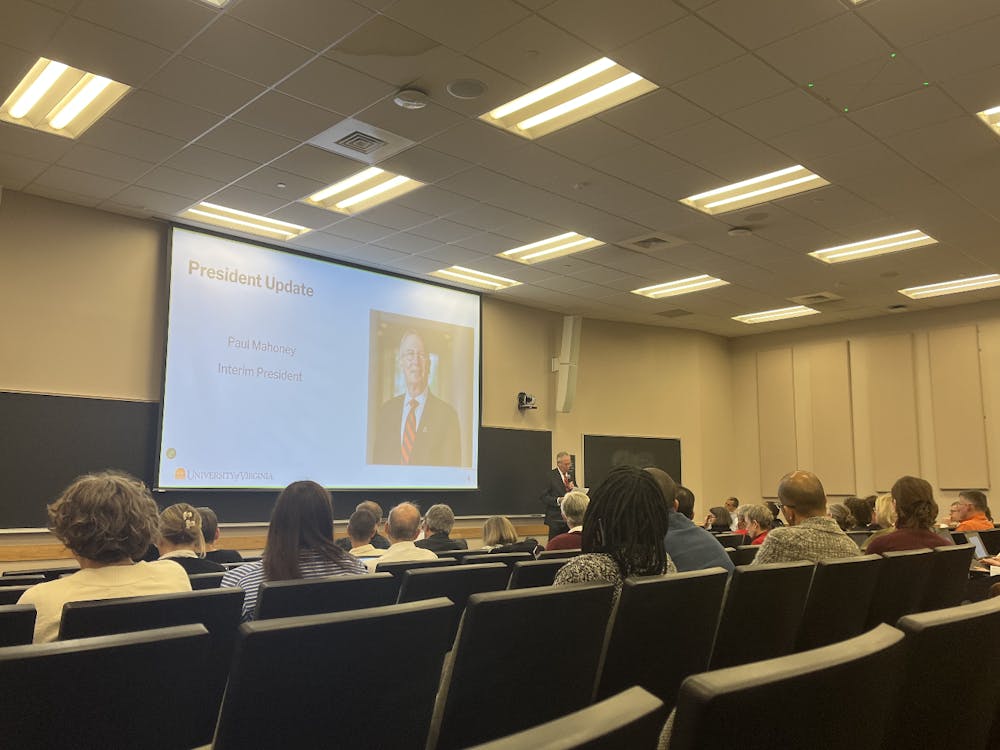RICHMOND - The Republican Party made history last night when it assumed one of its greatest majorities in the history of the House of Delegates. The Republican stronghold now most likely will be an obstacle for Democrat Mark R. Warner, winner of Virginia governor's seat.
"The Democratic Party has, for all practical purposes, ceased to exist as a force in the state," said Donald Moseley, secretary of administration under Gov. James S. Gilmore III's administration.
Polls indicated at 10:30 p.m. last night that 63 Republicans had won seats in the Virginia House of Delegates. All 100 seats were up for election this year.
"This is our historic high for the House of Delegates," Gilmore said. "This is the biggest number of the night."
Gilmore added his administration would work with Warner to ensure a smooth transition over the next few months. He said Warner's belief in fiscal conservatism and his support of phasing out the car tax would make this feasible.
Republican gubernatorial candidate Mark L. Earley said in his concession speech at the Omni Hotel in Richmond that he is optimistic about the future of Virginia.
|
Earley said he was proud to be part of a "golden era" led by Gilmore and former governor and now U.S. Sen. George Allen.
"Over the past eight years, we have built a record unsurpassed by any other state," Earley said.
Earley, a former state senator and attorney general, conceded to Warner in what some polls showed as a very close race until the last few weeks.
Warner, who ran for U.S. Senate against John Warner in 1999, seemed to have learned from old campaign mistakes.
Warner came "back with an almost flawless campaign," Moseley said. "Mark Warner is by far the better campaigner."
One of the deciding factors in the 2001 race for governor was the Northern Virginia tax referenda. "This issue really, really hurt" Earley, Moseley said.
The tax referenda would allow Northern Virginia citizens to vote to increase local sales taxes by half a cent, from 4.5 to 5 in order to improve the condition of roads and transportation in the fast growing area. Warner fully supported the initiative while Earley promised to disallow it.
Many political pundits criticized Earley for focusing too much of his campaign on Warner's support of what Earley called a $900 million tax increase. In response to such accusations, Earley said it was "a fundamental difference between he and I. He wants to raise taxes. I want to cut taxes."
This year's budget impasse, in which the Virginia General Assembly failed to balance the budget, also affected the strength of Earley's campaign because he served as attorney general when the controversy arose.
The budget impasse "became a bigger issue as the campaign developed," current Republican Lt. Gov. John Hager said. "Our economy began to decelerate and was further impacted by terrorism."
David Botkins, director of communications for the Earley campaign, said the budget impasse hindered the Earley campaign, but that "Mark [Earley] had nothing to do with it."
Warner's well-funded campaign also presented an obstacle for Earley. Warner poured at least $5 million of his own funds into his campaign. Overall, Warner spent over $16.5 million on his campaign compared to Earley's $9.5 million.
Both candidates came under fire for their use of negative advertisements, which tends to deter some voters from paying attention to the policy issues.
"I was just ready for the ads to be over," Henrico County resident Robert Goetz said.
"They were policy ads that were drawing distinctions," Botkins said. "That's what policy is -- differences and distinctions."
The Sept. 11 terrorist attacks also played a role in the governor's race as many voters became preoccupied with the national crisis. Voters exiting the voting precincts at Shortpump Middle School, where Earely spent much of his last day campaigning said they had not watched the campaign as closely as normal.
William Vick, officer of election at the Shortpump Middle voting precinct with five years of experience, said much more emphasis had been placed on safety on this Election Day than he recalled in the past.
"You should always be prepared," said Vick, who made volunteers aware of what to do in the event of bomb threats prior to the precinct's opening.






